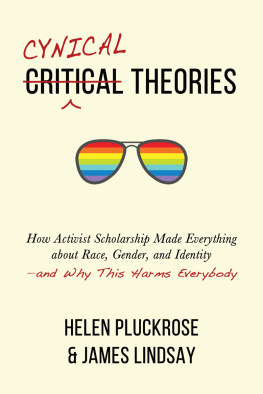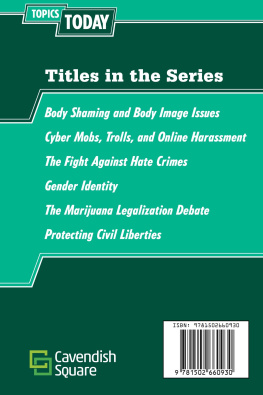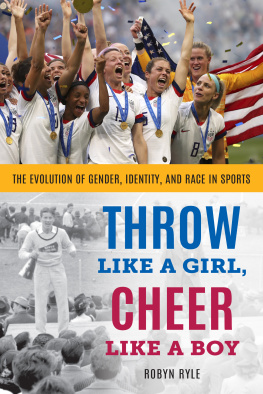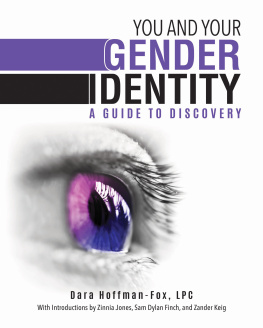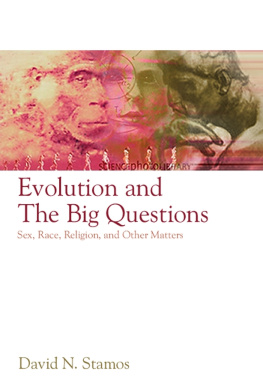Helen Pluckrose - Social (In)justice: Why Many Popular Answers to Important Questions of Race, Gender, and Identity Are Wrong--and How to Know Whats Right: A Reader-Friendly Remix of Cynical Theories
Here you can read online Helen Pluckrose - Social (In)justice: Why Many Popular Answers to Important Questions of Race, Gender, and Identity Are Wrong--and How to Know Whats Right: A Reader-Friendly Remix of Cynical Theories full text of the book (entire story) in english for free. Download pdf and epub, get meaning, cover and reviews about this ebook. year: 2022, publisher: Pitchstone Publishing, genre: Politics. Description of the work, (preface) as well as reviews are available. Best literature library LitArk.com created for fans of good reading and offers a wide selection of genres:
Romance novel
Science fiction
Adventure
Detective
Science
History
Home and family
Prose
Art
Politics
Computer
Non-fiction
Religion
Business
Children
Humor
Choose a favorite category and find really read worthwhile books. Enjoy immersion in the world of imagination, feel the emotions of the characters or learn something new for yourself, make an fascinating discovery.
- Book:Social (In)justice: Why Many Popular Answers to Important Questions of Race, Gender, and Identity Are Wrong--and How to Know Whats Right: A Reader-Friendly Remix of Cynical Theories
- Author:
- Publisher:Pitchstone Publishing
- Genre:
- Year:2022
- Rating:5 / 5
- Favourites:Add to favourites
- Your mark:
Social (In)justice: Why Many Popular Answers to Important Questions of Race, Gender, and Identity Are Wrong--and How to Know Whats Right: A Reader-Friendly Remix of Cynical Theories: summary, description and annotation
We offer to read an annotation, description, summary or preface (depends on what the author of the book "Social (In)justice: Why Many Popular Answers to Important Questions of Race, Gender, and Identity Are Wrong--and How to Know Whats Right: A Reader-Friendly Remix of Cynical Theories" wrote himself). If you haven't found the necessary information about the book — write in the comments, we will try to find it.
Specifically, this is a book about the evolution of a certain set of ideas, and how these ideas have come to dominate every important discussion about race, gender, and identity today.
Have you heard someone refer to language as literal violence, or say that science is sexist? Or declare that being obese is healthy, or that there is no such thing as biological sex? Or that valuing hard work, individualism, and even punctuality is evidence of white supremacy? Or that only certain peopledepending on their race, gender, or identityshould be allowed to wear certain clothes or hairstyles, cook certain foods, write certain characters, or play certain roles? If so, then youve encountered these ideas.
As this reader-friendly adaptation of the internationally acclaimed bestseller Cynical Theories explains, however, the truth is that many of these ideas are recent inventions, are not grounded in scientific fact, and do not account for the sheer complexity of social reality and human experience. In fact, these beliefs often deny and even undermine the very principles on which liberal democratic societies are builtthe very ideas that have allowed for unprecedented human progress, lifted standards of living across the world, and given us the opportunity and right to consider and debate these ideas in the first place!
Ultimately, this is a book about what it truly means to have a just and equal societyand how best to get there.
Cynical Theories is a Wall Street Journal, USA Today, and Publishers Weekly bestseller. Named a 2020 Book of the Year by The Times, Sunday Times, and Financial Times, it is being translated into more than fifteen languages.
Helen Pluckrose: author's other books
Who wrote Social (In)justice: Why Many Popular Answers to Important Questions of Race, Gender, and Identity Are Wrong--and How to Know Whats Right: A Reader-Friendly Remix of Cynical Theories? Find out the surname, the name of the author of the book and a list of all author's works by series.


